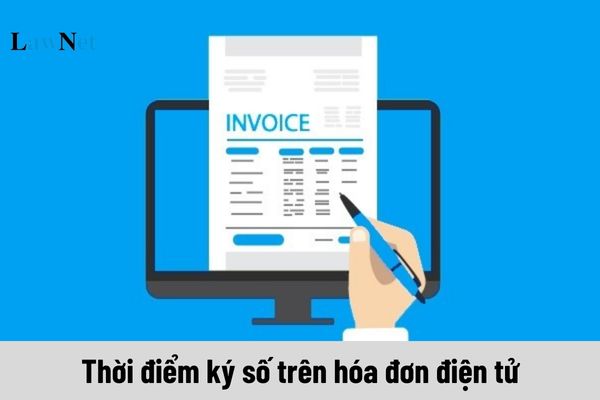When is the date of the digital signature on an e-invoice in Vietnam?
Vietnam: What does an e-invoice mean?
According to Article 89 of the Law on Tax Administration 2019, an e-invoice is an invoice with or without the tax authority’s authentication code, shown in electronic data form by organizations and individuals selling goods, providing services, recording information about selling goods, or providing services under the provisions of accounting law and tax law by electronic means, including invoices generated from cash registers connected to transmit electronic data to the tax authority.
Furthermore, e-invoices include VAT invoices, sales invoices, electronic stamps, electronic tickets, electronic cards, electronic receipts, electronic goods dispatch cum internal transportation notices, or other electronic documents with different names.
An authenticated e-invoice is an e-invoice that the tax authority issues a code to before the organization or individual selling goods or providing services sends it to the buyer.
The tax authority’s authentication code on the e-invoice includes a transaction number, which is a unique number generated by the tax authority system, and a string of characters encoded by the tax authority based on the seller’s information provided on the invoice.
An unauthenticated e-invoice is an e-invoice sent by the organization selling goods or providing services to the buyer without the tax authority's code.

When is the date of the digital signature on an e-invoice in Vietnam? (Image from the Internet)
When is the date of the digital signature on an e-invoice in Vietnam?
The date of the digital signature on an e-invoice is stipulated in clause 9, Article 10 of Decree 123/2020/ND-CP as follows:
Content of Invoice
...
9. The date of the digital signature on an e-invoice is the time when the seller and the buyer use digital signatures to sign the e-invoice, displayed in the format of day, month, and year of the Gregorian calendar. In case the date of the digital signature on an e-invoice is different from the date of the invoice creation, the tax declaration time is the invoice creation date.
10. The tax authority’s authentication code for e-invoices with the tax authority’s authentication code according to clause 2, Article 3 of this Decree.
11. Fees, charges belonging to the state budget, trade discounts, promotions (if any) according to the guidance in point e, clause 6 of this Article and other related contents (if any).
12. Name and tax code of the printing organization for invoices ordered by the tax authority.
...
Thus, the date of the digital signature on an e-invoice is the time the seller and the buyer use digital signatures to sign the e-invoice, displayed in the format of day, month, and year of the Gregorian calendar.
In case the date of the digital signature on an e-invoice is different from the date of the invoice creation, the tax declaration time is the invoice creation date.
What is the yse of digital signatures and e-transaction verification codes by taxpayers?
According to clause 4, Article 7 of Circular 19/2021/TT-BTC, the use of digital signatures and e-transaction verification codes by taxpayers is regulated as follows:
- Taxpayers must use digital signatures by digital certificates stipulated in clause 1 and points a, b of clause 2, Article 7 of Circular 19/2021/TT-BTC to sign electronic documents when transacting with the tax authority by electronic means.
- Taxpayers who have contracted a tax service with a tax agent can have the tax agent use their digital certificate to sign the taxpayer's electronic documents when transacting with the tax authority by electronic means.
- Individual taxpayers conducting electronic tax transactions with the tax authority without having been issued a digital certificate can:
+ Use an electronic transaction authentication code sent via “message” to the phone number or email address the taxpayer registered with the tax authority or relevant electronic transaction agency (hereinafter referred to as SMS OTP);
+ Or use an electronic transaction authentication code randomly generated every minute by an automatic electronic device provided by the tax authority or a relevant electronic transaction agency (hereinafter referred to as Token OTP);
+ Or use an electronic transaction authentication code randomly generated after a period provided by an application from the tax authority or a relevant electronic transaction agency installed on a smartphone, tablet (hereinafter referred to as Smart OTP);
+ Or authenticate by biometrics according to Decree 165/2018/ND-CP.
- Organizations or individuals declaring, paying taxes on behalf of other organizations, individuals, or foreign contractors conducting electronic tax transactions with the tax authority must use the digital certificate of the organization or individual declaring, paying taxes on behalf to sign electronic documents when transacting with the tax authority by electronic means.

